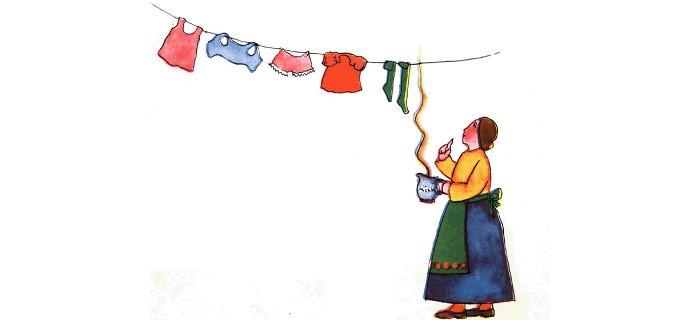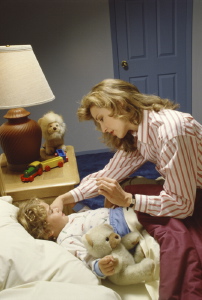Top Five Natural Health Books You Should Have on Your Shelf

Every family has a reference shelf. On ours you'll find the phone book, the almanacs for 1997 and 2001 (the years the girls were born--a family tradition on John's side), a thesaurus, a dictionary, some foreign language dictionaries, two different versions of the Bible (I need to look up the odd reference now and again), an atlas, and the AA Big Book.
It's also where we keep our family health references. Here are five books that every home should have on its reference shelf, plus one that should be in the kitchen:
1. American College of Emergency Physicians First Aid Manual
Nothing can take the place of a good first aid course, and I urge every adult to get first aid certified. But even people with first aid training need a good reference. This first aid manual stands head and shoulders above the rest for one reason: It's really, realy well illustrated. And when it comes to first aid, pictures make the difference. If you are familiar with DK books, this is yet another gem from them.
2. The Encyclopedia of Natural Medicine
This is one of the first places I turn for all manner of simple family health matters. Its advice is sound, reassuring, practical and manageable at home, and it's one of my standard housewarming gifts for anyone just starting out. Written by two naturopaths, it covers many common ailments and focuses primarily on prevention and home cures, though it's clear on when it's time to see your medical care provider.
3. The Herbal Medicine Maker's Handbook
Anyone interested in natural medicine should get this handbook. Comprehensive but not confusing, James Green's book teaches you the use of herbs as medicine, when to use them, and how to preserve and prepare them--even how to grow them and when to harvest them. No family seriously interested in natural medicine should be without it. (Another great one: Rosemary Gladstar's Family Herbal.)
4. Homeopathic Medicine at Home
This is a terrific introduction to using homeopathic remedies at home. When we first started using homeopathics, John was skeptical--until he got a bad muscle sprain. Arnica healed him nearly overnight and he's a believer now. This guide walks you through choosing the right remedy (it's not as simple as "Take this remedy for stomach ache") and clearly explains the whys and wherefores for the medical lay audience. (Also good but not as accessible: Homeopathy: A Home Prescriber.)
5. Where There Is No Doctor
This is a book you hope you never need. But every home concerned about disaster preparedness should have a copy to consult. Ours is in a place we can grab it for the emergency kit. It is not a replacement for a doctor, but it can help you keep someone alive and in one piece until you can get to medical help. And if Hurricane Katrina taught us anything, it's that we have to rely more on ourselves than we thought we did. It's part of a terrific series of books on DIY medical care including "Where There Is No Dentist" and "Where There Is No Women's Doctor." If your neighborhood is organized for disasters, making sure copies of this book are on at least one shelf is a really good plan.
...and one for the kitchen:
Nourishing Traditions
This new classic is part of a series including Honoring Our Cycles and The Fourfold Path to Healing. It gives you all the nutrition information you need to begin healing yourself. The more I follow the advice in this book, the better I feel. In the four years since we started following, even wobbily, the nutritional advice in "Nourishing Traditions," John has lost 50 pounds and I've lost 40. If you have a chronic illness, get it.
Lynn Siprelle edits this site.
